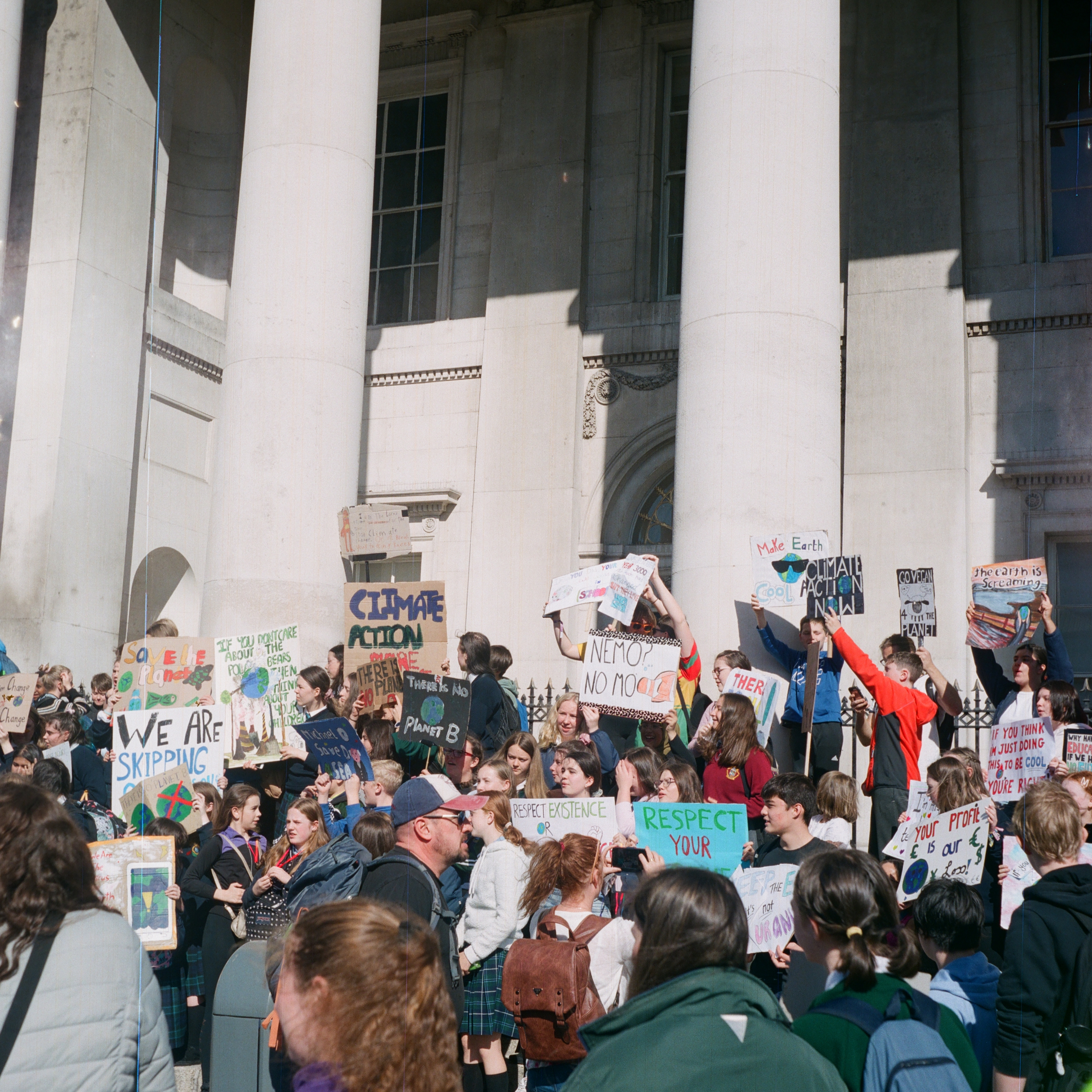As seemingly the entirety of Dublin, and indeed the whole world, took to the streets in a rallying call against the impending climate crisis facing us all, one voice was suspiciously silent. At the heart of Ireland’s capital and a key part of its history, education and culture, Trinity as an institution has an important and influential voice both within the country and on the world stage.
Back in December 2016, College took a decisive stance and led Ireland’s universities in the fight against climate change by pledging to divest its €66.1 million worth of investments in fossil fuel companies, finally capitulating to a 15 month-long campaign by the grassroots student-led campaign Fossil Free TCD. At the time, the provost said the decision “puts the university at the forefront of sustainability and institutional fossil fuel divestment nationally”, and that “we aspire to be a leader in sustainability and climate solutions in every aspect of the College”.
“Trinity has a duty to use its authority and status to find and support climate crisis solutions.”
Today, in 2019, it is time for both the provost and College to turn those aspirations towards sustainability and finding solutions to the climate crisis into action. Trinity holds an important place on the world stage, respected at home and abroad as one of the world’s oldest and most influential universities. It’s time for College to use its voice and its platform to support climate solutions as publicly and as often as possible. As an institute of education which supposedly houses some of the foremost scientific and academic minds in the country, Trinity has a duty to use its authority and status to find and support climate crisis solutions.
Other Irish universities like DCU publicly voiced support for their students’ participation in last week’s worldwide strike for climate action on social media, as did many of Trinity’s peers on the world stage like Cambridge and the University of Edinburgh. More still put their public and vocal support for their students’ activism into practise by openly excusing student absences from classes during the strike.
On the other end of the spectrum, some secondary schools in Dublin, namely Blackrock College, faced backlash for warning students from attending the “infuriating” strike. In the face of these two opposing responses to the strikes, Trinity’s silence was all the more noticeable. Only a single tweet from a professor indicated that a private email was sent to staff to “facilitate” the strike, but the lack of any official confirmation or message to students is both noteworthy and disheartening.
Last Friday’s climate strikes had students at their heart, and so it was only right that students took charge of Trinity’s participation in Dublin’s strike. TCDSU and Trinity Extinction Rebellion led the Trinity contingent of the strike, bringing a dedicated group of students to make a united cry for action. College staff and administration, however, should not have been exempt from this participation. Students’ voices may represent the college, but College should have used its voice in support too.
“Trinity’s spending on business class flights was higher than almost any other college in the country, and emitted a considerable amount of CO2.”
It’s not just in words that Trinity appears to be falling behind in its commitment to climate solutions, but in actions too. The strike came less than a week after it was revealed through the Freedom of Information Act that Trinity spent over a quarter of a million euro on business class flights for staff, bringing up a level of hypocrisy not just in College’s financial situation, but in its pledge to lower emissions. Trinity’s spending on business class flights was higher than almost any other college in the country, and emitted a considerable amount of CO2.
Recent research has shown plane travel to use on average 285g of carbon dioxide per km per passenger, compared to just 14g emitted on a train. Pledges to lower emissions and divest from fossil fuel companies appear relatively meaningless when they’re not applied to the hundreds of thousands spent on carbon-intensive flights for staff.
As a leading educational institute, Trinity obviously supports the view that we must take action to prevent the destruction of our planet. Climate activism should not just be a student issue though, and we need every voice we can get in protecting the environment, especially College’s. A global university should tackle global issues, and it’s Trinity’s time to step up.






